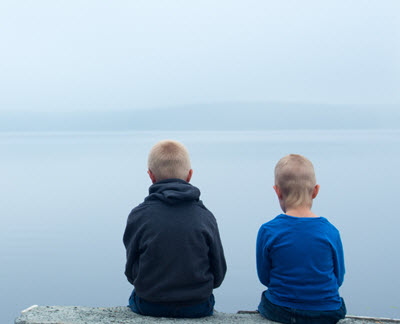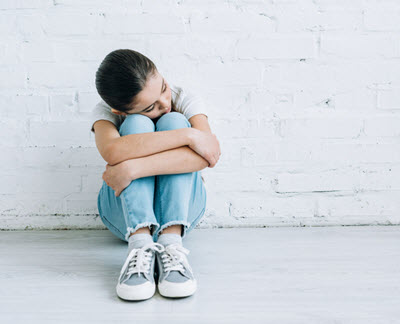 Did you know that children as young as two…
Did you know that children as young as two…
… are aware of death, even if they cannot comprehend what death is?
It may also surprise you to know that children inherently know how to grieve normally and naturally. They often aren’t able to, because those around them unknowingly or unintentionally interrupt their process.
They are often not given the space to talk openly and honestly with the adults around them and process their emotions as they come up.
This is largely because of the sad-but-true fact that parents and caregivers, although well intended, are not educated themselves on what healthy grieving is.
For example, in an effort to help or shield children from grief, they try to “be strong” for their children rather than being emotionally honest. Since children learn and model their behavior by what they see around them, they begin to “stuff their feelings” instead of process them in a healthy way.
The consequences of unresolved grief in children…
When this happens, children begin to accumulate unresolved grief early. This can affect many things later in life – from their general way of viewing the world or how they show up in relationships.
Johnny* comes home from school crying because some kids were teasing him. He tells his mom; and, in her effort to take away his pain, she says, “Johnny don’t feel sad. Those kids don’t know what they are talking about. You are the best little boy there ever was. In fact, I just made some cookies. Have one of these cookies, and you’ll feel better.”
What just happened here?
His well-intentioned mother just told him not to feel what he was feeling instead of allowing him to feel sad and exploring that with him. The next thing that happened was he was given food to cover up the feelings.
While it didn’t make Johnny feel better, he did feel different. This can potentially set up a child to use food or other substances when they feel sad and has a good chance of being a coping mechanism into adulthood. We may also carry into future relationships the idea of not talking about our feelings and to just suck it up and move on.
If this is something you have done, please know that this is not to bring shame or judgment on the caregiver.
In the example above, mom just wanted to take the pain away from her child; but we need to understand that removing pain isn’t the best solution. As parents or caretakers of children, we use what we were taught to do to comfort our kids; but we need to become aware that what we may have been taught might not be helpful.
 Helping children deal with loss is the solution.
Helping children deal with loss is the solution.
It’s a program designed for anyone who is in contact with a child of any age who has experienced a loss of any kind.
As a parent or caregiver, you are the most influential person in your child’s life; so it makes sense that you, not a stranger, would be the one helping your child through this.
In this 4-week workshop, you will be educated on what healthy grieving is and how to support your child’s natural grieving process.
Then, you will be given the tools on how to help your child get emotionally complete with what was left unfinished, so they can truly heal their little hearts.
Let’s work together to help your child understand and cope with loss.
Watching a child grieve and not knowing what to do as their parent, teacher, or caregiver can be extremely difficult.
If you are ready to learn guidelines for helping children develop a lifelong healthy response to loss, call me to attend one of our workshops or to schedule a workshop for your group: (469) 706-0993.
*Names changed to protect client confidentiality.

